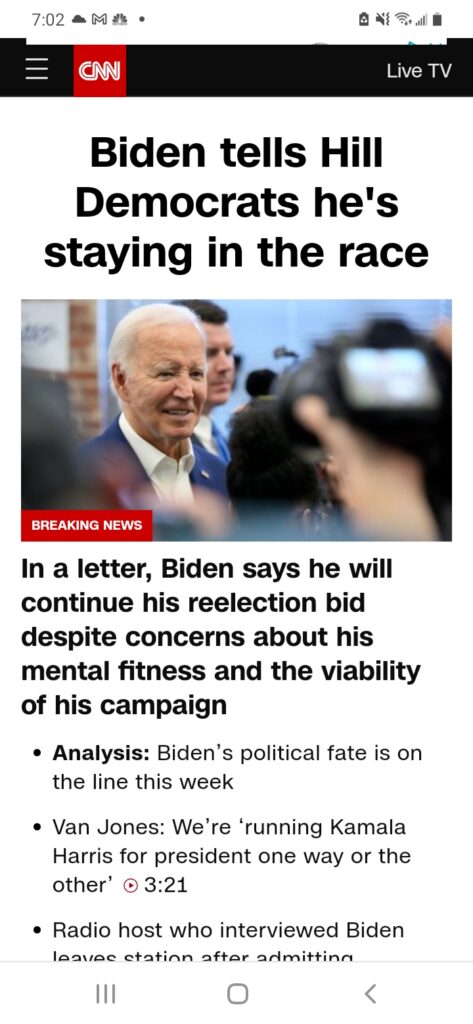Recently, Dave Winer has written about how the Democratic Party stops communicating its message when the election is over. His position is that the Republican Party has supporters/surrogates/podcasts/TV networks pushing the Republican message 24/7/365, but that the Democrats are only “on-the-air” during the lead up to an election.
This is not a new message from Dave Winer. He has long voiced the opinion that past Democratic campaigns (Obama in particular, but now Harris as well) shut down the campaign websites they created, lost contact with the voters they organized, and left a void in the Democratic Party organization. See also similar comments from Ken Smith echoing this refrain.
Shortly after the election, Dave Winer put out a request for identifying who was behind the @kamalahq social media feeds, which did a good job of responding to Republican activities during the 2024 presidential campaign, pretty much in real time. Within a few days, he had a name (Lauren Kapp), a link to her LinkedIn site, and a link to one of her TikTok videos, where she said that two staffers and three interns produced the content for these feeds. Based in the frequency of updates, I would say they worked seven days a week keeping the flow of content going.
I think it was great that Dave Winer was able to use his blog and network to find this person. His next steps were a little underwhelming, and I think it is worth taking some time to analyze how the “call to action” could have had more effect. His post of November 19th where he revealed the identity of Lauren Kapp included these words:
“We need to get her back on the air, with her team, fully funded and supported. We need leadership on the social web.”
Good statements, but no next action step provided. Also, the use of the “royal we” (“We need to…”) implies that someone needs to take the ball and move it forward, but no effort is made to identify or motivate “them”. If you wanted to try to do something about this communication problem, why stop at identifying the talent and leaving the rest up to “them”? Dave recorded a podcast giving some more detail on how he sees this project, but again, no next step is provided. Also, I think it would be easier for the target audience (“them”) if there was a next step in the post instead of trying to get someone to listen to a podcast that has no action step.
Two days later, Dave Winer followed up on his first post, saying he would contribute $100 to get @kamalahq “back on the air”:
“Let’s get the Dems back on the air before the inauguration. I’ll kick in $100 to get it started, and I’ll tell everyone I know to fund it too. There’s no time to waste.”
A nice offer, but who is going to do something about it? The phrase “when everyone is in charge, no one is in charge” comes to mind. Dave’ earlier version of this post encouraged people to reach out to every Democratic influencer they know about this topic, but it ended up getting revised to “I’ll throw in money when someone else puts it together. Maybe he made some other efforts, but if he did, why not tell us about it?
Before I examine some alternatives, I want to be clear – this is a typical problem of ideas thrown out on the Internet. “Here’s an idea, world – get back to me when you have it implemented”. I am boring down a little deeper on this one because Dave puts out calls like this fairly often, and I think it’s a good idea, but sometimes ideas need help.
Now, what if there were some steps suggested that people could take like:
- Reaching out to Lauren Kopp before even making the first post and seeing if she is interested in participating in keeping this news flow going, and if she is, telling us about it. That could provide a spark.
- If she is interested, start a GoFundMe or some other crowdfunding vehicle to see if there is other interest.
- Reach out to your local Democratic county organization or state organization, provide links to these posts, see if there is interest/support (here is a next step for readers)
- Keep banging the drum (Dave says he does this for projects he is promoting)
These are a few ideas of how to help make this idea (getting a prolific social media platform for Democrats going again) a reality again.
SPOILER ALERT: I actually did steps 1 and 3, will post back on what response I get…taking action is key, not just posting ideas on the Internet…
